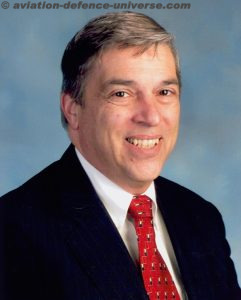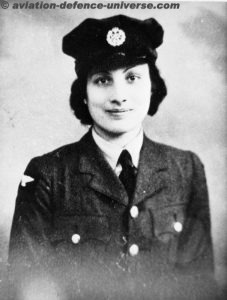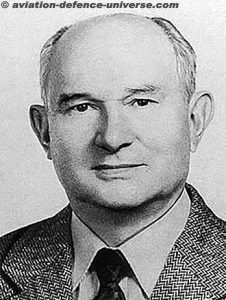By Jai Kumar Verma
New Delhi. 12 August 2023. Continuing with our series on spies of the world, we are this time tracing the life, times, and actions of Robert P. Hanssen, who was an officer in the Federal Bureau of Investigation (FBI) USA, which needs no introduction for being the lead agency of counterintelligence.
FBI’s basic object is to protect the secrets, national assets and counter the activities of foreign agents but Hanssen worked for more than 20 years for Moscow during the cold war as well as after the end of cold war. Hanssen, was caught in 2001 and awarded life imprisonment in 2002, is considered one of the most damaging spies in American history. The U.S. attorney Paul J. McNulty stated that “The magnitude of Hanssen’s crimes cannot be overstated,”. After the sudden death of Hanssen in prison the attorney said that “They will long be remembered as being among the most egregious betrayals of trust in U.S. history. It was both a low point and an investigative success for the FBI.”
Hanssen who received $1.4 million in cash, diamonds and other gifts from Moscow supplied several vital information to Russians. He gave details of the three K.G.B. officers to Russians who were working for the United States. He and Aldrich Ames disclosed the name of Dmitri Polyakov who had a rank of General in USSR army and was working for C.I.A. Polyakov was caught in 1986 and executed through a gunshot to the back of his head. Hanssen also supplied twice list of American double agents to KGB.
Hanssen supplied thousands of classified documents pertaining to U.S. policies about nuclear warfare, F.B.I.’s bugging activities, developments of military weapons and also about the counterintelligence programmes of U.S. He also provided information about measurement and signature intelligence (MASINT) which included the information collected through spy satellites, radars, and signal intercepts. He also gave prior information about the Operation Monopoly under which FBI constructed a tunnel beneath the decoding room of the under construction Soviet Embassy in Washington D.C. in 1977.
In 2001 Hanssen’s arrest cracked the relations between Washington D.C. and Moscow although that was the time when both the countries were trying to develop good relations after the end of cold war and breakdown of USSR. U.S. expelled 50 Russian diplomats and as happens in diplomatic circles Russia retaliated by expelling 50 American diplomats.
Hanssen was a trained counterintelligence operator hence he took all precautions and continued supplying information to Russians for such a long time. After his arrest he disclosed to the investigators that the security in FBI is so slack that with routine security clearance one can access to classified documents.
The FBI gave a long rope to Hanssen as it wanted to catch him red-handed with complete evidence so that he can be sentenced in court. Hanssen realised it that he was caught with evidence hence he pleaded guilty to 15 counts of espionage and conspiracy. He also articulated regret for his treachery. In 2002 court awarded him life imprisonment without parole. He was kept in a most secure prison and was kept in solitary confinement for 23 hours a day.
Hanssen joined F.B.I. as a special assistant in 1976 but approached the office of Soviet Trade Organisation in New York in 1979. This Soviet trade organisation was the frontal organisation of Soviet Military Intelligence Agency. Here he contacted GRU officer and offered that he wanted to work for them. In 1980 his wife caught him, and he stopped working for them however again in 1985 he started working for K.G.B. As he was a trained intelligence officer hence, he used trade craft techniques in supplying the information. He also kept his identity so secret that even K.G.B. was not knowing his real identity. He worked with cover names like “B”, “Ramon” or “Ramon Garcia”. He only once met his handling officer and was giving information and getting money through DLBs (Dead Letter Box) which were selected by him and refused to use DLBs suggested by his handling officer.
Once Soviet Union dissolved, he stopped working but as he became accustomed of easy money, he again started supplying information to KGB in 1999. Nonetheless C.I.A. had also sources in KGB and they had the information that Russians are getting information even Aldrich Ames another important C.I.A. official who was working for KGB was caught. The Americans continued their search for Russian mole in F.B.I. but Hanssen was quite clever and was able to hide himself until 2000 when F.B.I. paid $7 million to a former Russian intelligence officer who gave a file of agent “B” which had the voice recording of Hanssen. The F.B.I. investigators recognised the voice of Hanssen. The F.B.I. put surveillance behind him and came to know that Hanssen was supplying information to Russians.
As F.B.I. wanted to build a solid case against him, hence in December 2000 he was promoted and in 2001 was given a young assistant Eric O’Neill, who was in fact a F.B.I. surveillance specialist. O’Neill successfully obtained conclusive evidence against Hanssen from his computer. Surveillance cameras and microphones were also fitted in his office. In 2001 about 300 persons were working and investigating his activities. 24 hours active surveillance was mounted behind Hanssen, and he was arrested when he placed classified documents for his Russian handling officer in a DLB.
Hanssen, as a trained intelligence officer, was aware that by and large the end of a spy is either he is caught, or he has to commit suicide. Hence when he was caught by F.B.I. he stated, “What took you so long.”
It appears that the reason he worked for Russian intelligence was that he had a perceived feeling of persecution by the society. He thought that he deserved much more than he got by the society. Not only this by seeing the spy movies especially of James bond he developed misconceived notions about the agents and their handlers. It is difficult to understand that why a young man betrayed his country and his organisation just after three years of joining the F.B.I. The different motivations for which the person betrays his country like greed, ideology, drug, alcohol, sex, career disappointments were not applicable on Hanssen.
There was a contradiction in his life, as a devout Roman Catholic he posed himself as a pious religious anti-communist while in reality he was visiting strip clubs, had relations with a stripper named Priscilla Sue Galey, allowed his friend to watch secretly when he had sex with his wife. Several books were written and films and T.V. movies were made on Hanssen.
Hanssen was computer expert and F.B.I. had so much of faith in him that in 1987 he was deputed to study and make a report about all the infiltrations in F.B.I. including real and assumed penetrations. In this way he was tasked to search for himself. Hanssen prepared the report and excluded his name.
In 1989 when F.B.I. was investigating the case of Felix Bloch an employee of State Department, Hanssen informed KGB and KGB stopped meeting Bloch abruptly. The F.B.I. could not gather proof against Bloch and he could not be prosecuted.
Hanssen’s brother-in-law who was also working in F.B.I. told that his sister saw lot of cash in Hanssen’s house, and he should be investigated but no action was initiated against Hanssen. In 1994 when he wanted posting in National Counterintelligence Center, he was told that he had to undergo a lie detector test. He refused to join the Counterintelligence Center because he wanted to avoid lie detector test. Hanssen came under suspicion and his computer was confiscated under the orders of National Security Division Chief, but he concocted a story and F.B.I. dropped the enquiry after giving him a warning. As he was computer expert, he searched FBI’s internal computer and found out that no enquiry was pending against him. This emboldened him and he continued supplying information to KGB.
It makes two things clear one that as Hanssen was a trained intelligence officer hence, he took all precautions therefore he successfully worked for KGB for such a long time. Secondly it also gives a lesson that once a person becomes an agent of enemy intelligence agency and he holds an important position then he would never be out of hook. The intelligence agency of other country would trace the agent out and would compel him to work. Thirdly once a person becomes addict of easy money it is difficult for him to leave it. Hence Hanssen stopped giving information twice but started again. The security agencies of the world should also learn a lesson that several times greed play a vital role and in case of suspicion on any person a through enquiry should be launched. If there would be a comprehensive and systematic enquiry against Hanssen, he would have caught much before, and a lot of damage could be saved.
(Jai Kumar Verma is a Delhi-based strategic analyst and member of United Services Institute of India and Manohar Parrikar Institute for Defence Studies and Analyses. The views in the article are solely the author’s. He can be contacted at editor.adu@gmail.com)


































































































































